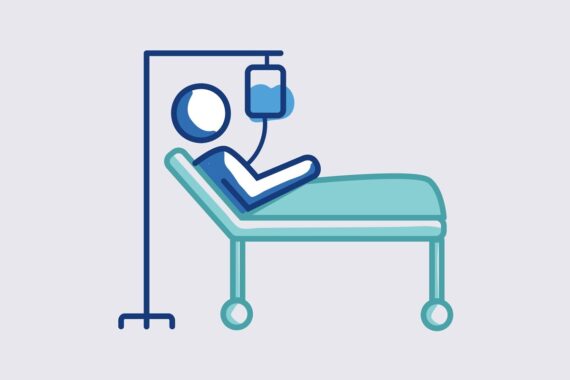End-of-life care doctor – all you need to know

Dr Julie Barker is an end-of-life lead for her ICB as well as a GP for Macmillan Cancer Support. She talks about working in palliative care
How do I get into the role (including necessary qualifications)?
I do hold a palliative care diploma, but it was not a prerequisite for my role as end-of-life lead. GPs can get into this type of work without this qualification. But it has been extremely helpful in my role, as has a spell as a clinical assistant in a hospice. Most important is an interest in and passion for improving quality of care, together with compassion for people who are suffering.
How much does it pay?
It will vary by ICB and my time is currently a zero hours contract (PAYG) which dropped in the last year to £68/h. I claim the hours worked, which again varies across the year.
How much time do I need to devote to it?
As with most portfolio careers, the time you spend can vary widely. It has varied from initially two sessions per week. Currently, because I am involved in a wider portfolio of transformation work dictated by local priorities it varies from 20-50 hours per month.
What’s good about the job?
Working with patients at the end of their life can be the most rewarding part of our work as a GP, especially if you have known the patient and their family for years. They never forget the support given at this time as it lives on in the families’ memory. Working with a variety of professionals and care staff across the county as well as regional and national colleagues to develop better services and share innovative and effective interventions is also very satisfying.
In recent years there have been new developments, such as: cross-boundary interface work between primary and secondary care, including trialling substantive roles for GPs to work as part of hospital teams; fellowships that resource GPs near retirement to do 6-12 months transformation or audit work; developing transformation work, allowing GPs to shape the pathway; and working with other providers within neighbourhood teams, one of the few areas of the NHS that is seeing increased funding.
What’s bad about the job?
First and foremost, the pay is lower than that of a practice-based GP. It’s also time consuming, and the slowness and red tape of NHS organisations can be frustrating. My experience is that local managers need to work more closely enough with clinical leads. Although I have admin support, it is stretched very thinly. In addition, financial pressures tend to threaten creativity in commissioning and lead to short-term decision making.
Advice from the MDDUS
Providing palliative care in NHS or independent settings? You may benefit from specialist indemnity and advice.
Click here to see all the other portfolio careers in this series
Portfolio careers
What is the right portfolio career for you?












